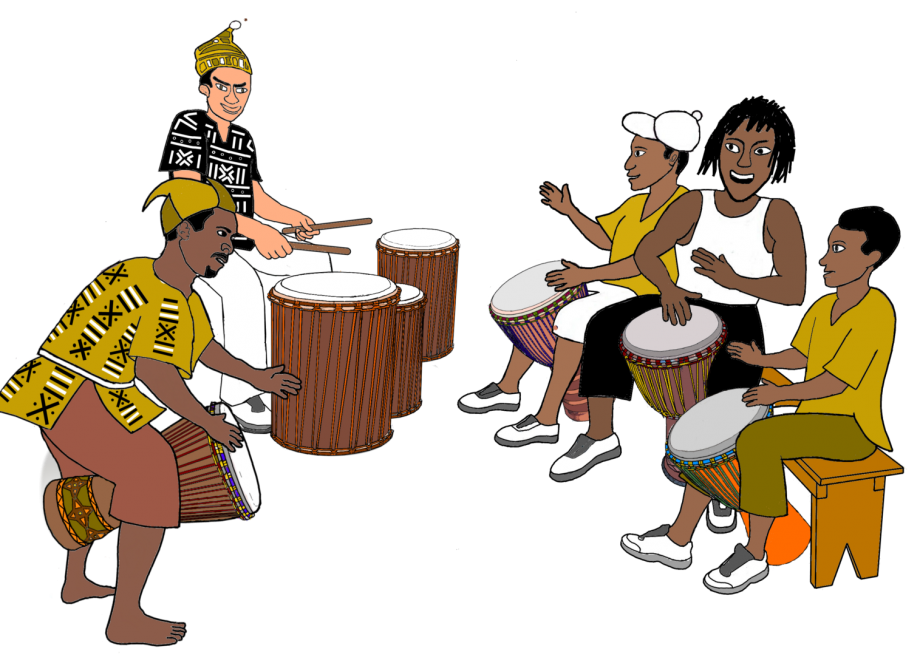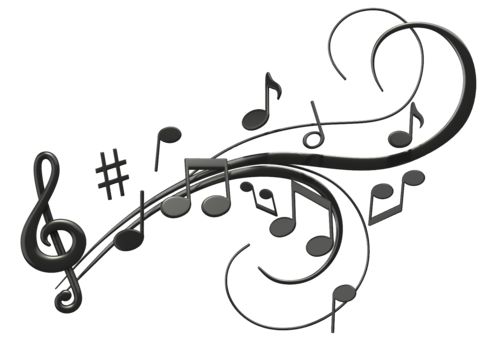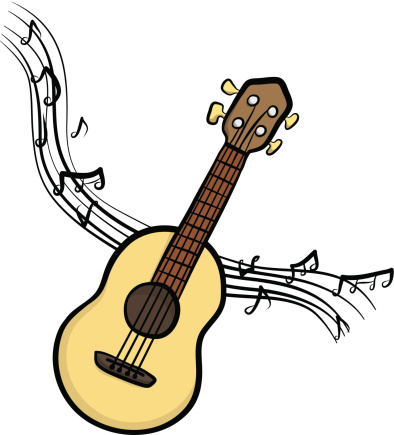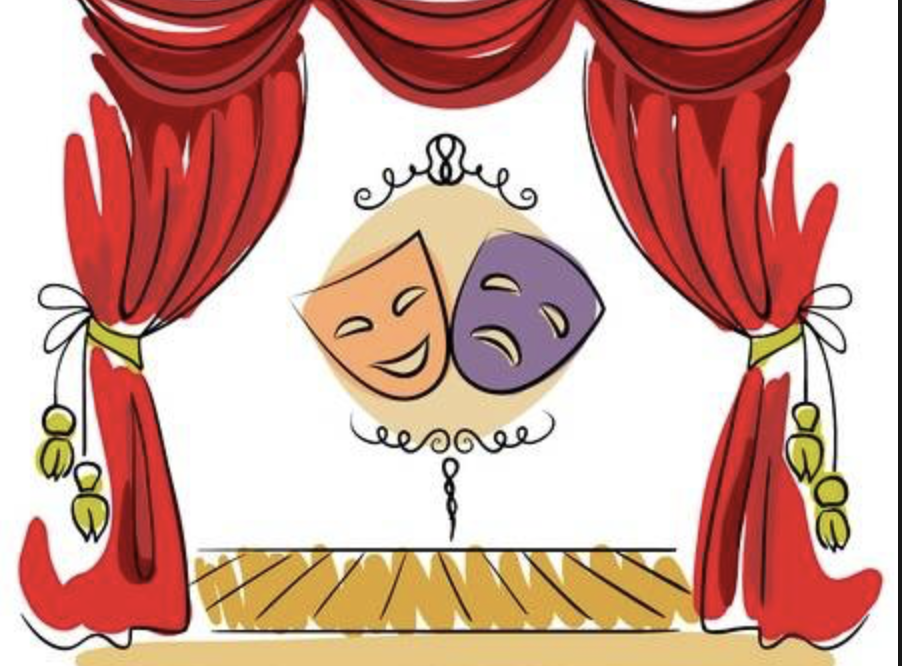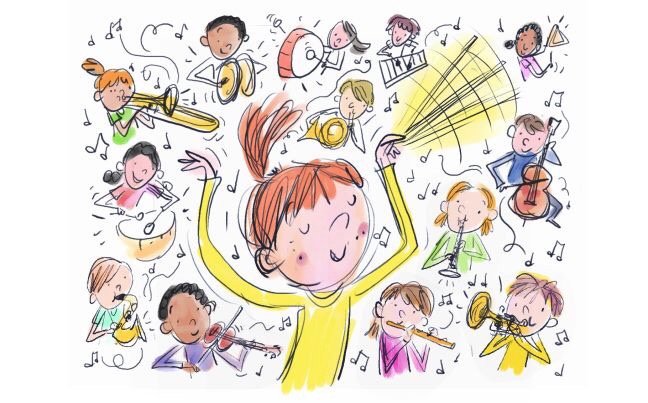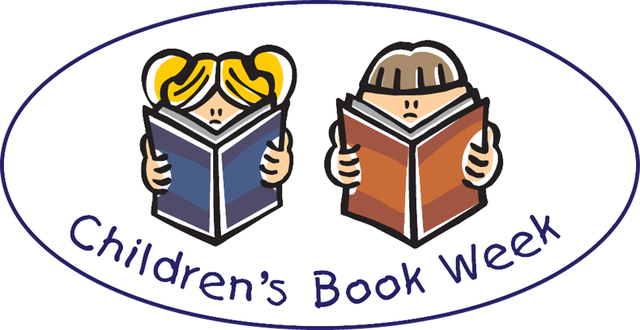I am fortunate to work in a school with a large budget. However, this hasn’t always been the case. My budget most of the time when I worked in the UK was zero to fifty pounds annually. You end up finding some very innovative ways of working when you have no money. Here is one way that you can run a good department with no cash. What you will have to do is get approval from your headteacher to raise money and insist ALL of it is the Music Department’s to keep. If you can do this, you will succeed!
So you start a new job and let’s say you are horrified to find there are half a dozen broken instruments and a few dusty songbooks. What do you do now? Always remember, your best resource are the children themselves – use them wisely and they will get educated and help build your department. The first thing to do is get singing. This costs zero and can be incredibly fun. Start off with singing games in September, it will help you to learn the children’s names if you don’t know them already. Incorporate Kodaly methods and the hand signs and work hard on aural, unison singing and rounds.
You now need to send a survey to parents to find out what instruments the children play. You could just ask the kids, but as we all know, they don’t always tell you everything. I remember finding out that one of the kids I taught was actually in a family bagpipe band and they played at a whole load of functions nationwide. And I also found out another kid was in a relatively successful rock band with his dad and some of his dad’s friends and played at pubs. I even saw them at New Year one year. Did these kids tell me what they played? Nope. The survey got them though. You will do a Spring Concert. Make sure parents know their children are going to be playing and tell them the date.
Next is a trip to a hardware store like Jewson’s. You need a set of claves and if you take one with you, explain you want a set of 60 sticks for the local school and could someone please make them for you for free. I have never done this before, but a colleague has and she says it worked for her multiple times. Now you can do some simple rhythm work. You will also need some shakers. Make some shakers with the children using yoghurt pots and rice. You won’t be using these instruments for long but you need something and you’ve got no money so this is how you can get a set of 30 shakers quickly. Use plastic buckets for drums and hit them with your sticks if you haven’t got any drumsticks. You can now do some Graphic Score work and learn rhythmic notation. I’ve got a set of 12 graphic score cards and some rhythm cards you can have for free. You will need some triangles. If you have none hit suspended metal with forks or spoons.
The next step is an instrument amnesty. With permission from your headteacher, write a letter and ask for instruments. If you work in a church school, ask if they could be brought to school at the same time as the Harvest Festival (kills two birds with one stone). Label everything. If you have a trolley, put instruments in tidily but I would recommend getting a cupboard. You will get a whole load of Early Years toys, you’re probably best off giving these to Early Years. Keep the instruments that you know will be used properly. If you can’t fix the instrument and no one else can, bin it.
This is now the time to start your choir (around October). Choir is incredibly important. Not only is it a fun, collaborative, social, educational activity for children that makes you cleverer, and happier but it is an entrepreneurial, market-driven, capitalist revenue-generating machine. You need cash. So now it’s time to go busking. You want to make sure you can book a spot at a supermarket or mall where you can sing and get people to put cash in a bucket. I have done this many times but you need to get in quick as the Salvation Army normally has a monopoly. You want to sing in the first two weeks of December if you can. The week before a Christmas everyone is running around like a lunatic and they have spent all their money. If you are feeling brave sign up for Christmas lights opening ceremonies. Ask permission to raise money for musical instruments, I have never had any problems doing this in the past. Accompany the children on a guitar if you can. If you know half a dozen chords you’re pretty sorted. Otherwise use backing tracks (always causes some difficulties with technology) or sing unaccompanied.
Also see if you can sing at an old people’s home. This can sometimes be upsetting for the children but I have found it a worthwhile experience. Kids need to know old people exist and some are not always well and sprightly. You aren’t making any cash here! You are giving back to the community and using it as an opportunity to practice. So in the lead up to your Christmas concert you have a gig at an old people’s home, and busking outside in the local community. The final one is a concert at your own school. Put on at least one nativity or Christmas show. If you can’t afford one, email me and I will give you one of mine for free with the script and all the music. I’ve written three nativities, one about a polar bear, one about Scrooge and a bizarre one where the shepherds are ninjas, the angels are aliens, the wise men are pirates and Mary rides into Bethlehem on a dragon! I never charged but always left a bucket in the corner for donations. It might seem mercenary but everyone knows schools have no budgets and people will try to give back (especially if it was awesome!). Make sure you invite whole families to your show; you want uncles and aunts to come, especially if they have no kids as they are normally the only people with any cash!
Christmas has now ended and you should have some money. I would invest in some resources for Early Years and Key Stage 1 with the proceeds. You want a parachute for parachute games, some beanbags (you can always borrow these off P.E.), some scarves and some ribbon wands and five sets of diatonic handbells (the brightly colored ones). This is your big expense but I will explain why you want these. Some of these items you could make yourselves, or you could argue that they would be useful outside of music lessons. You might already have some somewhere in your school. I always think that the priority is Early Years and Key Stage 1, as if you get this right then everything else should follow.
The handbells are for your new handbell club and to relatively cheaply learn about pitched instruments without the expensive cost of xylophones. This is also another revenue making enterprise and really good for collaboration and team work. You put the children into six groups (C to A) and you play a load of songs that use the first six notes. There are hundreds of them. I can send you a PowerPoint with some to get you started. Your handbell group is for Year 2 or 3. I have done Year 1 but I think if I suggest them you will end up with a weekly headache! You can use handbells in the curriculum and in your club. They are also good to play outside (when you have memorized the melodies). Your aim is to play handbells in your local park on the bandstand (if there is one). You need to organize an Early Year’s Teddy Bear’s Picnic and this is going to be one of the highlights. The choir will also sing and hopefully there will be other children playing from your September survey. You don’t need to do this in the park, you can also do it at school but if you do it in the park then people can contribute in the bucket and so you aren’t always trying to get funding from parents. And concerts in the park are awesome. Invite the Scouts and the Salvation Army to come. This is how you will get your brass for your future school orchestra. These incredible people train your kids to play brass instruments for free (or 50p in my old scout troop). Also invite any other performers and groups – you want a crowd and you don’t want only parents at your functions. You want other people from the community to give you some money. Don’t always try to get it off the parents, they are often as broke as your school! This is your Easter Concert and make it fun and colorful – the brightly colored scarves, handbells, ribbons and parachute will bring Spring to everyone and banish the dark, cold winter months from memory.
You are probably past Easter now and everyone is going mental preparing for SATS. In traditional schools you might have a Maypole. This is the time to do some old fashioned country dances even if you don’t have one. The Year 6’s might moan about this but they will do anything to get out up from their desks and this might de-stress them and who knows, might even make them happy unless they are Class A misery-guts. Years 1-4 will think this is the greatest thing that has ever happened to them since Minecraft was invented. Dancing is something you need to become normal in your school, I taught in Helton in Cornwall many years ago where they have Flora Day and everyone dances. It is abnormal if you don’t dance. I teach about three or four country dances for kids every year but there are loads and you can get the dances and the music for free. I would suggest you put on a ceilidh in your school or community hall and charge two quid for entry. It’s always fun and the kids can show off some of the dances to their parents. If you are not comfortable calling the dances, make a few phone calls and I bet you can find someone to come in – these dances were actually a compulsory part of the curriculum in some counties of the UK many, many years ago and we could really do with reviving them nationwide. I teach them in China now and when I was in Thailand and the kids have always loved them but beware in some Muslim countries – when I was in Kuwait we were not allowed to do any dancing. The children love the Grand Circle Dance, Patacake Polka and especially Bridge of Athlone the best where you make tunnels. Oxo Reel is also fun but takes a bit more organization. I’ve seen some Year 6’s do Black Nag in medieval dress. This is an ancient dance and it was very special seeing this performed but I’ve never done it myself.
You now need to plan your summer show. If you’ve got no cash I’ve got a pirate musical for KS1 you can have for free and if you need something for KS2, I would recommend you do something like Debbie Campbell’s “Robin Hood and Friends”. It’s always been successful in every school I have worked at. It’s pretty cheap and adaptable. Don’t worry about sacking the curriculum to do a show; when I talk to grown up kids that I used to teach, it is always the thing they remember the most about Primary School. Shows are important and really powerful as far as musical identity goes. If I was to do a PhD, I think this would be the area I would choose. Put your show on over a couple of nights and a matinee and leave that bucket out for donations.
After your show has ended it is time to wind down. Don’t go mad with curriculum in the last few weeks of term, do some games and perhaps get the children if they are able to write down what they most enjoyed about music and what they would like to do in the future. Quite a lot of choir content comes from talking to the children.
You have now got through your first year teaching music with no budget. Year 2 is where you bring in recorders if you haven’t done so already and in Year 3 you will get your set of 30 ukuleles. But that’s for another post, another time.

